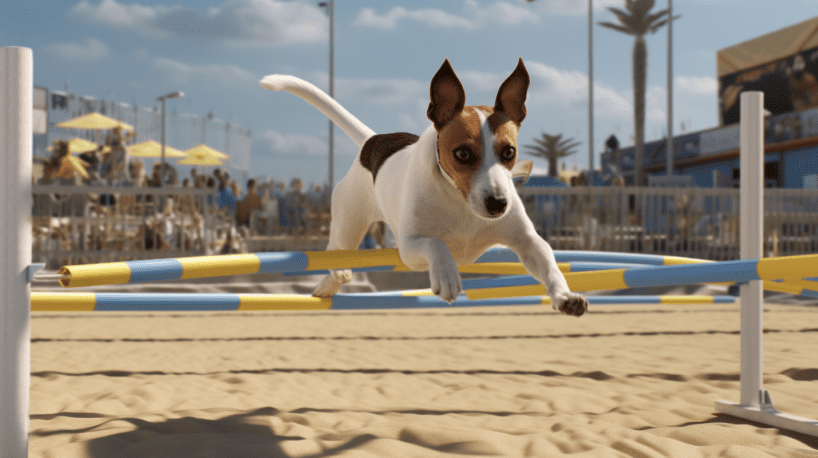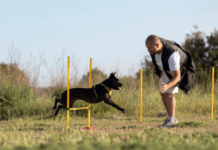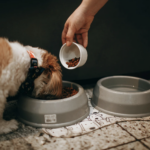Last Updated on April 26, 2024 by Dogs Vets
The Essential Guide to Jack Russell Terrier Care and Training
As lovers of Jack Russell Terriers, we understand the unique needs and challenges that come with owning and caring for this energetic breed. From training secrets to tips on teaching them to sit, this guide has you covered.
Let’s embark on this journey of understanding and training your Jack Russell Terrier together.
Understanding the Jack Russell Terrier Breed
Jack Russell Terriers are known for their vivacious spirit, intelligence, and dedication to their owners. Born to hunt, these dogs are naturally active and require regular physical and mental stimulation.
Understanding their inherent traits is the first step in effective care and training.
Jack Russell Terrier Training Secrets
Training a Jack Russell Terrier can be a unique challenge due to their high energy levels and independent nature.

These terriers are clever, quick learners when the training methods align with their dynamic personality.
Positive Reinforcement
Positive reinforcement works wonders with Jack Russells. Praise them genuinely when they exhibit good behavior. Reward-based training will motivate them to repeat the action, reinforcing the behavior you desire.
Consistency is Key
Consistency forms the cornerstone of any successful training regimen. Use the same commands each time for specific actions to avoid confusing your Jack Russell. Regular training sessions will help reinforce the learned behavior.
When planning a diet for your energetic Jack Russell Terrier, it’s important to understand their specific energy needs. Use a tdee calculator to determine how many calories they should consume daily to maintain their lively disposition without becoming overweight.
How to Train a Jack Russell Terrier Not to Bark Excessively
Barking is a natural form of communication for dogs, but excessive barking can be a problem.
Here are some tips to curb this behavior:
Understand the Cause
Identify the triggers that cause your terrier to bark excessively. It could be due to boredom, fear, or attention-seeking. Once you understand the cause, you can address it more effectively.
Use Distractions
When your terrier starts to bark, try distracting them with a toy or a command. This can help divert their attention from the trigger.
Reinforce Quiet Behavior
Reward your terrier when they stop barking on command. This will reinforce the behavior and help them understand that quiet equals rewards.
How to Train a Jack Russell to Sit
Teaching your Jack Russell to sit on command is a fundamental part of their training.
Here’s a simple step-by-step guide:
Use A Treat as Motivation
Hold a treat close to your terrier’s nose and gradually move it up, causing their bottom to go down. Once they’re in the sitting position, say “sit,” give them the treat, and share affection.

Repeat Regularly
Repetition is crucial. Do this daily and in different environments to help your terrier get used to the command.
How to Train Jack Russell Puppy to Potty
Potty training your Jack Russell puppy might seem daunting, but with patience and consistency, you can achieve it.
Here are some steps to follow:
Establish a Routine
Puppies respond well to routines. Feed your puppy at the same times each day and take them out to potty regularly – first thing in the morning, after meals, and before bed.
Choose a Potty Spot
Pick a specific spot outside for potty and lead your puppy there each time. They will eventually associate this spot with potty time.
Use a Cue Word
As your puppy goes about their business, use a cue word like “go potty.” With consistent use, your puppy will learn to associate the word with the action.
Reward Success
When your puppy successfully uses the potty spot, shower them with praise and rewards. This will reinforce the positive behavior.
Conclusion
Jack Russell Terrier care and training may seem challenging, but remember – patience, consistency, and understanding are your best tools.
By following our comprehensive guide, you can build a strong bond with your terrier, helping them become a well-behaved and loving companion.
FAQs
Why is my Jack Russell Terrier barking excessively?
Excessive barking can be due to boredom, fear, or attention-seeking. It’s essential to understand the trigger and address it accordingly.
How long does it take to potty train a Jack Russell puppy?
With consistent training and positive reinforcement, most Jack Russell puppies can be potty trained in 4 to 6 months.
Why won’t my Jack Russell Terrier sit on command?
Your terrier may not understand the command, or they might be distracted. Make sure you’re using clear, consistent commands and practicing in a calm environment.
What are the unique challenges in training a Jack Russell Terrier?
Jack Russells are highly energetic and independent, which can sometimes make training challenging. However, their intelligence and eagerness to please make them quick learners.
How can I keep my Jack Russell Terrier mentally stimulated?
Regular training sessions, puzzle toys, and interactive games can help keep your Jack Russell mentally stimulated.
What should I do if my Jack Russell Terrier isn’t responding to training?
If your terrier isn’t responding to training, consider seeking help from a professional dog trainer. They can provide personalized guidance based on your dog’s specific needs.
Are Jack Russell Terriers good family pets?
Yes, Jack Russell Terriers make excellent family pets. They’re loyal, energetic, and great with kids. However, they need plenty of exercise and mental stimulation to stay happy and healthy.

















